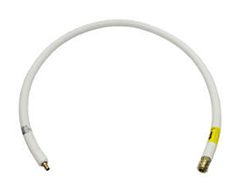Digital Food Safety System
Save time, reduce hassle and keep your business inspection-ready.
Get to know the regulations that you need to comply with and make sure you know what your responsibilities are. When you’ve got a bit of time, sit down and have a look at the Health & Safety at Work Act (1974), the GSIUR (Gas Safety (Installation and Use) Regulations 1998) and Code of Practice 24, sections 2 and 3.
Never use camping equipment. There are lots of reasons why you should never use camping equipment in a commercial catering business. In fact, you’ll find a few of them right here…
To be legally compliant, all LPG commercial catering equipment must be CE-marked (Gas Appliance (Safety Regulations) 1995). This is to ensure maximum safety and minimise risks to everyone near your unit.
N.B:
The UKCA (UK Conformity Assessed) marking is a new UK product marking that is used for goods being placed on the market in Great Britain (England, Wales and Scotland). It covers most goods which previously required the CE marking, known as ‘new approach’ goods.
The UKCA marking came into effect on 1 January 2021. However, to allow businesses time to adjust to the new requirements, you will still be able to use the CE marking until 1 January 2023 in most cases.
In August 2021, the UKCA Mark deadline was extended to 1st January 2023, giving the market an additional year to adjust.
You can find out more here
According to HSE’s Safe use of LPG at small commercial and industrial bulk installations you also need to have flame failure devices on all LPG equipment. That means that the gas supply will automatically cut out should the flame go out.
Make sure that your fire safety and health and safety risk assessments are up to date and that you are following them to the letter every time you trade.
These issues really are a matter of life and death.
Keeping your LPG cylinders in close proximity to naked flames is an obvious fire risk so make sure that you store them in a sensible place, on even ground. Don’t allow any public access to your cylinders either.
*Including the Health & Safety at Work Act (1974), the GSIUR (Gas Safety Installation an Use Regulations 1998), Provision and Use of Work Equipment Regulations 1998 (PUWER), Control of Substances Hazardous to Health Regulations 2002 and COP 24, sections 3 & 4

You should avoid using worm drive hose clips to secure your hoses because they can bite into the hose and cause damage, and there’s no way of knowing if you’ve over-tightened them. Likewise, you can’t tell if the device has come loose so wouldn’t know if they’re providing an effective seal.
If you are still going to use worm dive hose clips, opt for those with a smooth inner ring rather than the serrated or pierced type. Only ever tighten them enough to prevent gas escaping – going too tight is likely to crush or damage the hose or the connector.
You should use suitable factory-fitted swaged or crimped connectors to secure each end of low pressure hoses – just like those shown in this picture.

Instead of worm drive hose clips you should be using suitable factory-fitted swaged or crimped connectors to secure each end of low pressure hoses. These are a feature of the QuickSafe LPG System.
The law requires that you have your LPG appliances checked and maintained by a qualified Gas Safe engineer at least once a year. Remember to make sure that the engineer you use is qualified to work with the specific type of equipment that you use before employing them. You can see a full list of each engineer’s qualifications on the Gas Safe register.
At all times you ought to have person on shift who is “suitably trained” to work with LPG. They can take responsibility for dealing with LPG and appliances. (Did you know that you get half priced places on the NCASS LPG Safety training course included in your membership?)